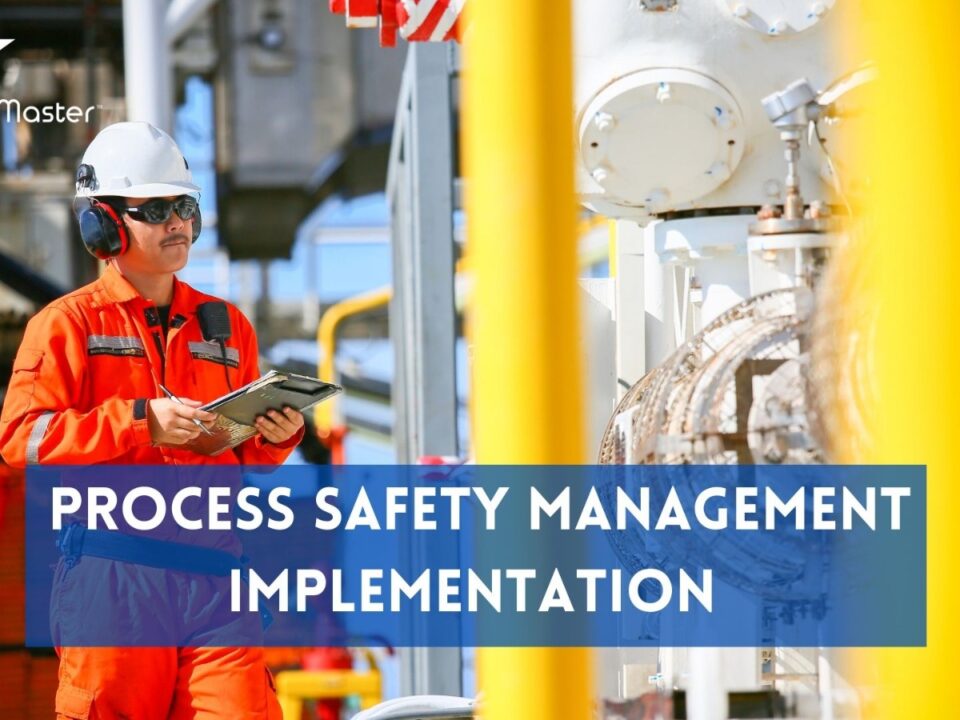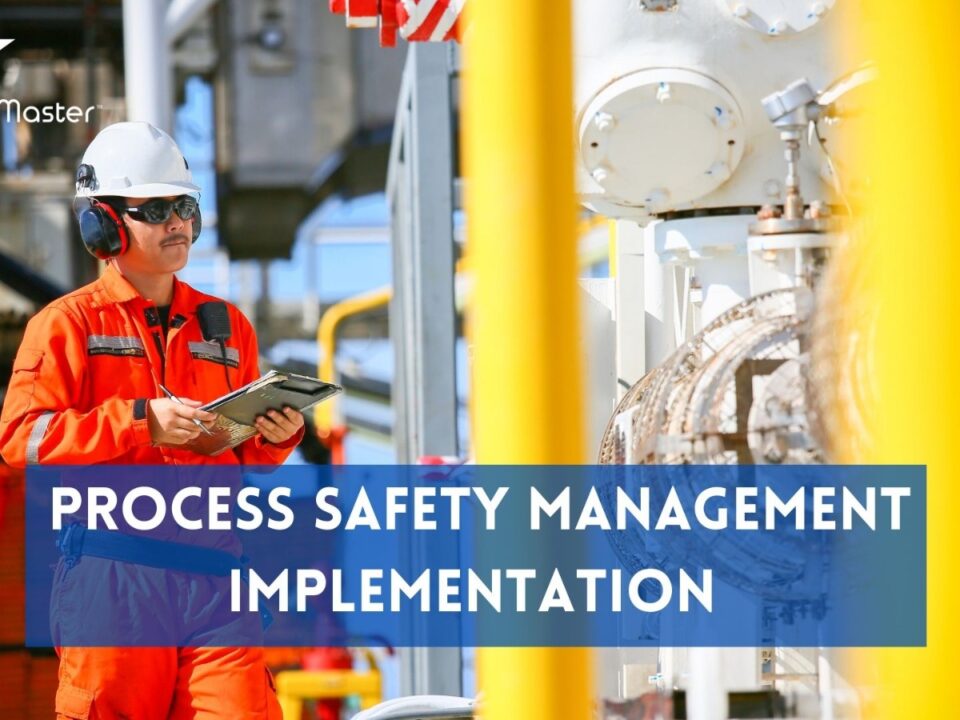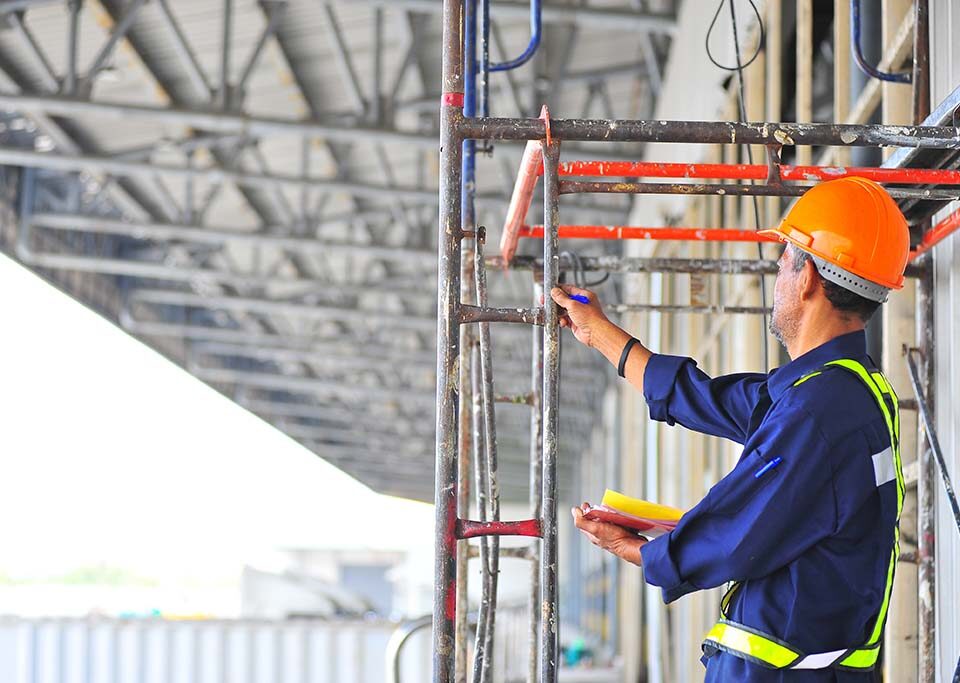Process Safety Management Training by TheSafetyMaster

Process Safety Management Implementation by TheSafetyMaster
August 23, 2023
Electrical Safety Audit and Residual Life Assessment by TheSafetyMaster
August 23, 2023Process Safety Management is a critical aspect of any organization’s operations, ensuring the safety and well-being of employees, the environment, and surrounding communities. The potential risks inherent in industrial processes require comprehensive training and proactive measures to mitigate accidents or disasters. At TheSafetyMaster, we understand the importance of equipping organizations with the knowledge and tools necessary to manage these risks effectively.
In this article, we will delve into the world of Process Safety Management Training by TheSafetyMaster, exploring its significance in today’s industrial landscape. We will guide you through the fundamental principles of process safety management and highlight how our training programs can empower your workforce and enhance your organization’s safety performance. Expect a detailed examination of each step involved in process safety management, from hazard identification to continuous improvement.
The Importance of Process Safety Management Training
Process Safety Management (PSM) training is an essential component of any organization’s risk management strategy. In high-risk industries such as oil and gas, chemical manufacturing, or pharmaceuticals, effective PSM training can mean the difference between a safe workplace and a potential disaster. The importance of PSM training cannot be overstated, as it equips employees with the knowledge and skills necessary to identify hazards, mitigate risks, and ensure the safety of both personnel and the surrounding environment.
By investing in comprehensive process safety management training programs, organizations demonstrate their commitment to maintaining high safety standards and protecting their workforce. Such training enhances employees’ understanding of potential hazards associated with specific processes or equipment they work with, enabling them to prevent accidents before they occur. Additionally, thorough PSM training instills a proactive safety culture within an organization, where employees are empowered to take ownership of their personal safety and that of their colleagues.
TheSafetyMaster: Your Trusted Partner in Process Safety Management Training
When it comes to prioritizing the safety of your organization and ensuring compliance with industry regulations, TheSafetyMaster stands as an unrivaled leader in the field of Process Safety Management (PSM) training. With a proven track record of excellence and a commitment to delivering exceptional education and guidance, we have established ourselves as the go-to partner for companies seeking comprehensive safety solutions.
At TheSafetyMaster, we pride ourselves on our team of highly qualified professionals who possess a wealth of knowledge and experience in PSM. Our instructors are adept at imparting essential skills and guiding organizations towards creating a robust safety culture. With our tailored training programs, we empower your workforce to understand, identify, and effectively manage potential hazards within your processes. We believe that by investing in quality PSM training, you can mitigate risks, boost productivity, and foster an environment where employees feel safe and valued.
Understanding the Fundamentals of Process Safety Management
Process safety management (PSM) is a critical discipline that ensures the effective identification, evaluation, and control of potential hazards in industrial processes. The foundation of PSM lies in comprehensively understanding the fundamental principles that govern safety. By grasping these key concepts, organizations can create a robust framework that promotes a culture of safety and helps prevent catastrophic incidents.
To truly comprehend the fundamentals of PSM, one must acknowledge that it encompasses various elements such as hazard identification, risk assessment, process design, operational procedures, employee training, and emergency planning. These facets work together harmoniously to build an environment where safety is ingrained at every level.
At its core, PSM revolves around systematically analyzing and managing risks associated with hazardous substances or processes. This includes evaluating potential sources of danger such as chemical reactions, equipment failures, or human errors. Through meticulous hazard evaluations and risk assessments, organizations can proactively implement controls to mitigate these risks and protect both their employees and assets.
A successful PSM program also recognizes the importance of continuous improvement. It strives to foster a culture where employees are encouraged to contribute their ideas for enhancing safety practices while actively learning from near misses or incidents within the organization or industry.
Step 1: Identifying and Evaluating Hazards in Your Organization
In the realm of process safety management, identifying and evaluating hazards within your organization is paramount. It serves as the crucial first step towards ensuring the safety and well-being of your employees, the environment, and the overall integrity of your operations. TheSafetyMaster understands that every organization has unique risks associated with its processes. Through their specialized training programs, they empower you to comprehensively identify and assess potential hazards specific to your operations.
During this phase, TheSafetyMaster’s expert trainers guide you through a meticulous analysis of various aspects such as equipment design, chemical handling procedures, and potential sources of ignition or release. Through their in-depth knowledge and experience, they help you recognize even the most subtle risks that could compromise safety in your workplace. TheSafetyMaster’s focus on proactive hazard identification enables organizations to take preventive measures effectively, resulting in reduced incidents and enhanced operational efficiency.
Step 2: Establishing Robust Safety Procedures and Protocols
Creating a safe and secure work environment requires the establishment of robust safety procedures and protocols. This step is crucial in ensuring that every task, operation, and process within your organization is carried out with utmost caution and adherence to safety guidelines. TheSafetyMaster understands the significance of this step, which is why we provide comprehensive training on establishing safety procedures and protocols that can effectively mitigate risks.
During this stage, our expert trainers emphasize the development of clear and concise safety policies that outline specific rules, regulations, and guidelines to be followed by all employees. These policies are designed to address potential hazards unique to your industry or workplace. By establishing such protocols, you demonstrate a commitment to employee well-being as well as the preservation of assets.
Step 3: Educating and Training Employees for Effective Risk Management
One of the cornerstones of a successful process safety management system is ensuring that all employees are equipped with the knowledge and skills necessary to mitigate risks effectively. TheSafetyMaster understands this critical aspect and offers comprehensive training programs designed to educate employees on risk management principles.
The training sessions provided by TheSafetyMaster are meticulously tailored to address the specific needs of each organization, covering topics such as hazard identification, emergency response protocols, safe operating procedures, and effective communication in high-risk environments. Through interactive workshops, engaging presentations, and practical exercises, employees gain a deep understanding of potential hazards and acquire valuable strategies for preventing incidents.
To ensure maximum effectiveness, TheSafetyMaster’s trainers employ various instructional techniques that cater to different learning styles. From guided discussions and case studies to hands-on simulations and online modules, employees are empowered with a holistic skillset that enables them to identify risks proactively, make informed decisions swiftly, and respond effectively in challenging situations. By investing in the education and training of your workforce through TheSafetyMaster’s programs, you can foster a safety-conscious culture where every employee feels confident in their ability to manage risks efficiently.
Step 4: Implementing Effective Safety Communication and Reporting Systems
Clear and efficient communication is the cornerstone of a successful process safety management program. To ensure seamless coordination, it is crucial to establish effective safety communication channels within your organization. TheSafetyMaster offers comprehensive training programs aimed at equipping your workforce with the necessary skills to communicate safety hazards, incidents, and concerns effectively.
Our expert trainers emphasize the importance of fostering a culture of open dialogue where employees feel comfortable reporting any potential risks or observations. By creating a safe space for sharing information, organizations can proactively address issues before they escalate into major incidents. Additionally, we emphasize the significance of utilizing advanced reporting systems that capture real-time data for accurate tracking and analysis. These systems not only enhance transparency but also enable prompt remedial actions to be taken, contributing to a safer work environment overall.
Step 5: Continuously Monitoring and Reviewing Safety Performance
Ensuring the ongoing effectiveness of process safety management requires a systematic approach to monitoring and reviewing safety performance within your organization. By diligently tracking key performance indicators (KPIs) and regularly evaluating safety procedures, potential risks can be identified early on, allowing for prompt corrective action.
One effective method for monitoring safety performance is through the implementation of regular safety audits and inspections. These assessments provide a comprehensive evaluation of your organization’s compliance with established safety protocols and standards. They also offer an opportunity to identify any gaps or areas requiring improvement. TheSafetyMaster recommends conducting these reviews at regular intervals to maintain vigilance in upholding safety standards.
Furthermore, fostering a culture of continuous improvement is crucial in sustaining an optimal level of process safety. Encouraging employees to actively participate in reporting near-misses, incidents, and potential hazards promotes open communication channels. This enables organizations to gather valuable feedback from the front lines, empowering them to make informed decisions regarding necessary adjustments to their processes.
“Remember,” says TheSafetyMaster’s CEO Johnathon Smithson, “Monitoring and reviewing safety performance is not just about identifying failures or shortcomings; it’s about celebrating successes as well. By acknowledging achievements in maintaining a high level of process safety, you inspire your workforce and motivate them to continue striving for excellence.”
Step 6: Conducting Comprehensive Safety Audits and Inspections
When it comes to ensuring the highest level of process safety in your organization, conducting comprehensive safety audits and inspections plays a pivotal role. These systematic evaluations provide a structured approach to identify potential hazards, assess the effectiveness of existing safety measures, and identify areas for improvement.
At TheSafetyMaster, we believe that safety audits should be approached with both diligence and optimism. Our team of experienced professionals will meticulously examine your processes, equipment, and procedures to detect any vulnerabilities or deviations from established safety protocols. Our goal is not only to identify gaps but also to provide constructive feedback and recommendations that empower you to enhance your process safety management systems. By conducting these audits regularly, you can ensure that your organization remains proactive in mitigating risks and maintaining a safe working environment for all employees.
Step 7: Continual Improvement and Adaptation of Safety Procedures
In the realm of process safety management, one must embrace the notion that safety is not a static concept but rather an ever-evolving pursuit. The final step in the process safety management framework centers around continual improvement and adaptation of safety procedures. This proactive approach ensures that organizations stay ahead of potential hazards and maintain a robust safety culture.
Continual improvement involves regularly evaluating existing safety protocols, identifying areas for enhancement, and implementing necessary changes. It fosters a culture of innovation and empowers employees to contribute their valuable insights towards creating safer work environments. By embracing this philosophy, organizations can go beyond mere compliance with regulatory standards and strive for excellence in safeguarding their workforce, assets, and reputation.
Conclusion
As we conclude this comprehensive article on Process Safety Management Training by TheSafetyMaster, it is evident that investing in a robust training program is crucial for organizations seeking to ensure the safety and well-being of their employees and protect their assets. By following the systematic approach outlined in this article, organizations can effectively identify and evaluate hazards, establish robust safety procedures, educate and train employees, implement effective communication systems, continuously monitor safety performance, conduct comprehensive audits, and strive for continual improvement. It is through these proactive measures that organizations can foster a culture of safety and minimize the risk of accidents or incidents.
Process Safety Management Training equips individuals with the knowledge and skills necessary to tackle potential risks head-on. By prioritizing safety education and training, organizations demonstrate their commitment to protecting their workforce and maintaining a safe working environment. As TheSafetyMaster continues to provide expert guidance in process safety management training, organizations can rest assured that they have a trusted partner dedicated to helping them achieve excellence in risk management
With Best Wishes
Sanjeev Paruthi
TSM TheSafetyMaster® Private Limited
Unit No 221-451-452, SPL1/J, 2nd & 4th Floor, Sunsquare Plaza Complex, RIICO Chowk, Bhiwadi 301019, Rajasthan, India
Phone: +91 1493 22 0093
Mobile: +91 7665231743/9413882016
Email: info@thesafetymaster.com




